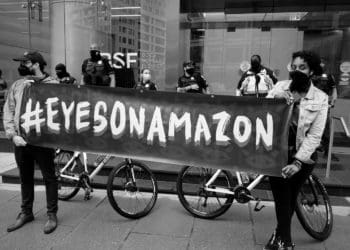Jay Rosen concludes his exploration on issues in working with monitors by considering how lawyers can engage monitors – most typically when their clients are under investigation for some regulatory issue, such as an FCPA enforcement action.
Don’t Wait Too Long
The biggest mistake outside counsel can make is waiting too long before bringing on an independent monitor.
AMI’s experience is that if you wait until after the conclusion of a matter, you have lost valuable time and potentially cost yourself money in the form of higher fines and penalties. The government expects compliance shortcomings to be remediated during the pendency of an investigation.
A monitorship can even begin before self-reporting to the government. This is because a company should want to find the problem before it voluntarily reports the problem to the government; the company could receive credit for having done so. It also allows the company to package the entire process in a way to say, “not only did we discover the problem, but we are also reporting the problem and, by the way, we have also fixed it.”
The company explains that they used an independent third party and may even want to keep that third party with the company to independently assess how to proceed on a go-forward basis. That’s very persuasive to prosecutors and we’ve certainly seen situations where, in some cases, it’s resulted in a declination or in a significantly diminished fine and penalty.
Demonstrate a Serious Commitment to Compliance
Using an independent monitor in this proactive manner demonstrates how serious the company is about compliance. It can also be a way to establish any illegal conduct that may simply have been an outlier and does not reflect the values, culture and the way the company generally conducts business. This can provide quite a positive story to present to prosecutors, particularly under the current FCPA Corporate Enforcement Policy.
Active Remediation
If your company is active in the remediation phase, particularly through an independent monitorship, it shows that you are looking at the problem with a holistic approach. This is more than assessing the problem and consists of coming up with set of solutions and then implementing these controls. More importantly, an organization is taking that information and looping it back in, literally in a feedback loop so the companies can continuously improve their compliance program. This also can be persuasive to regulators.
Repeat Offenders
This approach is even more critical for what we call “repeat offenders” or recidivist actors.
Government regulators are becoming much more sophisticated in differentiating whether a company’s compliance program is simply a paper program or if it has teeth.
The government wants to know if this a real program. One clear indicator is the feedback loop from an assessment by an independent monitor looping the information back to the company, making changes, testing to see whether the changes are real changes that are working changes.
Credibility with Prosecutors
Using an independent monitor increases a company’s credibility. Affiliated Monitors has consistently heard from white-collar practitioners perhaps the most important thing in any FCPA investigation or enforcement action is credibility with the prosecutors. Working with a truly independent monitor who is independent of the outside counsel and may be heading up an investigation and assessing the compliance program is one more way to demonstrate credibility in front of the prosecutors.
As my colleague Don Stern, a former U.S. Attorney for Massachusetts said, “your reputation in representing clients before the government is absolutely critical. Having that independence as a monitor can aid a company by giving credibility to their compliance program efforts, and this can pay off with real benefits in terms of lesser penalties, all the way to a declination.”
In case you missed the earlier installments of this ongoing series, please see the links below.
Everything You Always Wanted to Know About Monitors But Were Afraid to Ask
Part 1: Corporate Monitorship 101: Who Are They, and What Can You Expect?
Part 2: What is a Post-Resolution Monitorship?
Part 3: What is the Power of a Pre-Settlement Monitorship?
Part 4: What Issues Should a Company Consider When Hiring a Corporate Monitor?
Part 5: How Much Will a Corporate Monitorship Cost?
Potential Issues in Corporate Monitorships
Part 1: What are the Fears and Concerns of Working with a Monitor?
Part 2: What is the Impact of Monitors?
Part 4: How Can Regulators Leverage Monitors?












